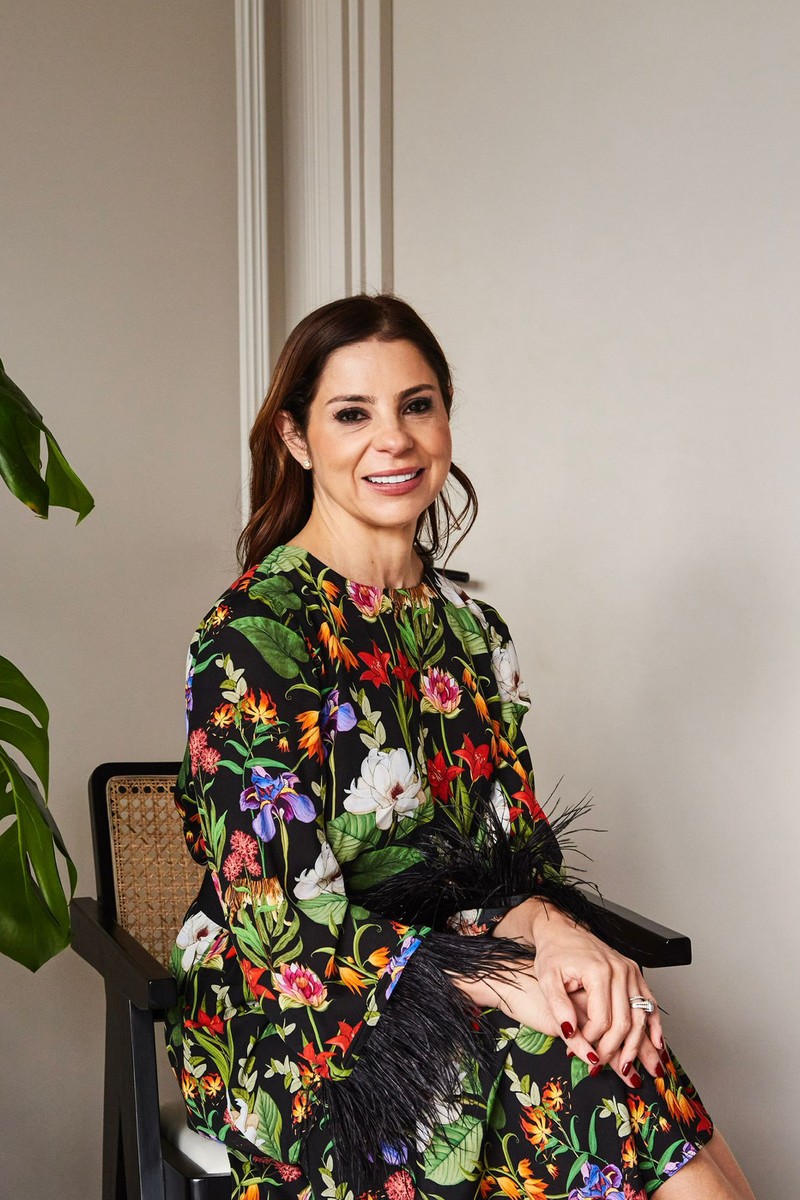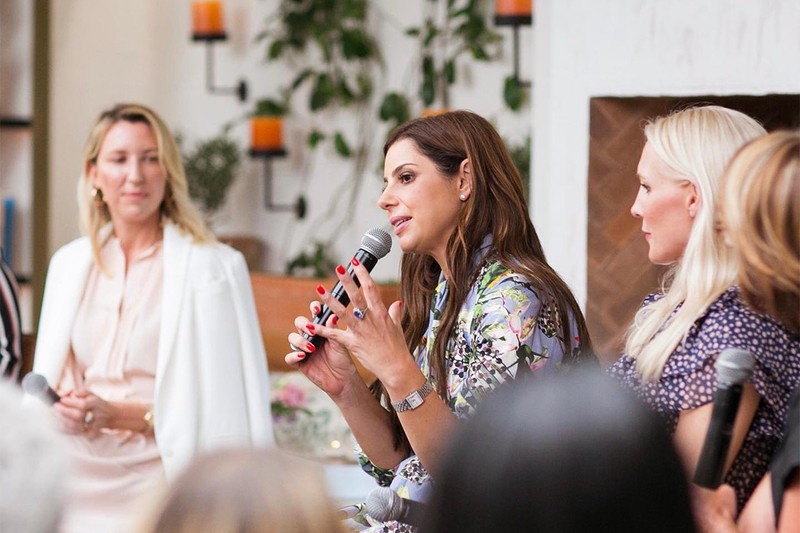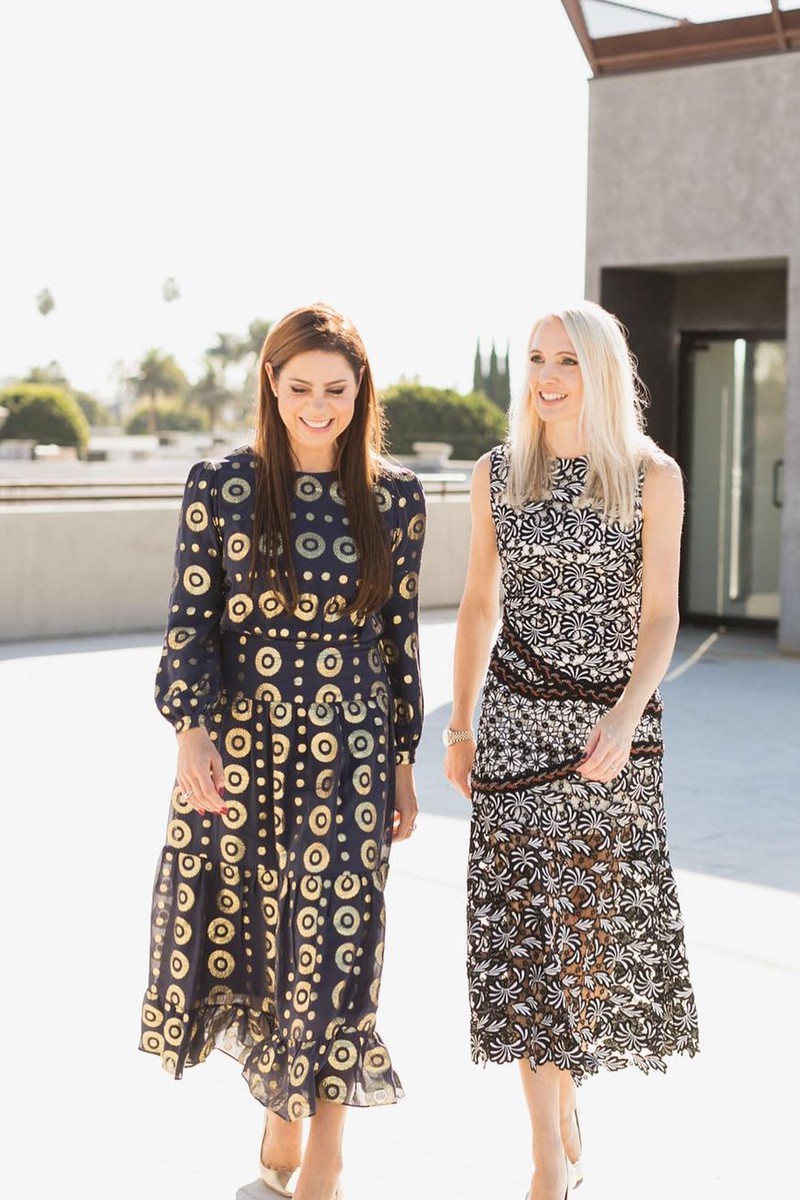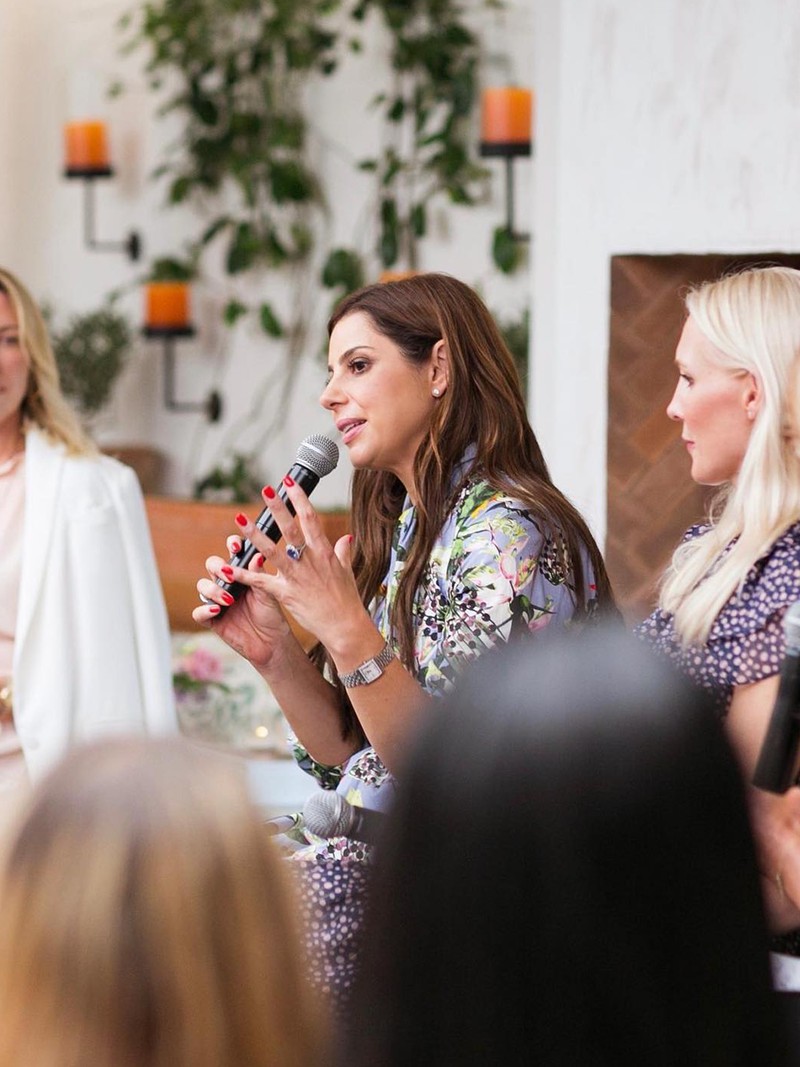
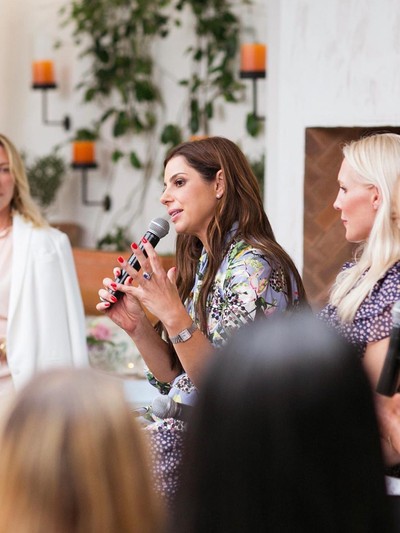
A Top Investor Talks Funding For Female Entrepreneurs
Why is funding of female entrepreneurs such an urgent issue?
In my entrepreneurial lifetime, the percentage of capital in the UK that goes to back a female founder has remained flat around the 2% mark. Prior to the Invest in Women Taskforce, I sat on the board of the Rose Review into Female Entrepreneurship with Alison Rose, the CEO of NatWest at the time. There were lots of actions and deliverables but the thing that was never really addressed was money. No female entrepreneur has ever said, “I'd like a little bit more mentoring, please.” But the sad fact is that, along with only 2% of capital going to back a female entrepreneur, there are only 23 women in the UK who own any economic or venture capital. So, we neither get the money nor do we write the cheques. With the Invest in Women Taskforce, I want to make the UK the best place in the world to be a female founder by creating the biggest funding pot in the world to back female investors.
How do you do that?
Well, we know that women back women. My latest business I chair is called The Better Menopause, which offers science-driven supplements for perimenopausal and menopausal women. Unfortunately, pitching to a room full of male investors about vaginal dryness isn’t necessarily a way to secure capital for your business. So, what I want to do at the Invest In Women Taskforce is create a pot of institutional funding – that means money from pension funds to investment banks to retail banks and the British Business Bank. We want all of them to empower more female investors and female-run venture capital funds to back women-led and mixed teams. We’ve set a target of £250 million for the initial funding pot.
Is the lack of funding a particular problem in the UK?
We’ve certainly lost a lot of ground because of Brexit. The European Investment Fund (EIF) – the European pot of money for venture capital funds – now has gender guidelines to dictate the way it deploys its capital, so the UK needs to step up. I'm a British entrepreneur and have worked between here and the US for my entire career. We shouldn't be sitting low down in the league table for backing female entrepreneurs.
Why is the UK so low down that league table?
It’s complicated but there are a few points I would make. The first is that we've lived through some difficult years economically after the pandemic, and when things are tough, it's human nature to invest in things that feel comfortable. The data also shows that Covid was not kind to women's careers – the percentage of capital going to female entrepreneurs in 2021 went down to 1%. There are also some structural issues in the investment community that mean funds need incentives to hire and employ senior women. That’s part of the reason behind creating the Invest in Women Taskforce – if you can incentivise funds to employ senior women, they will. If you just tell them they ought to, they don't. You've got to create incentive, and incentive is usually financial. But, as I mentioned, the data also shows that women back women, both institutionally and also through female angel investors, so that's another thing I'm very focused on – how we get more women investing.
What are the incentives you’re working on?
Women-led businesses deliver 35% better returns than male-led businesses, which makes them a great untapped economic opportunity. We really need to land that message with funds via the taskforce: we will help you raise money for your fund as long as you use it to back female-led and mixed teams. If we have the biggest ball of money in the world to back female investors who have a mandate to back women and women/male co-founded teams, we genuinely create an incentive. It's a trickle-down effect. If you have more female investors and more women needing investment committees with a mandate to back more women, then you change the conversation.
Is there an education or awareness gap when it comes to women and investing?
In the UK, there are a couple of tax breaks that Gordon Brown introduced to incentivise individuals to invest in high-growth businesses called the Seed Enterprise Investment Scheme (SEIS) and the Enterprise Investment Scheme (EIS). For the first £250,000 that any business that's registered for SEIS raises, the individual investor gets a 50% tax break. In other words, if you put a tenner in you get a fiver back. But women just aren't aware of those tax breaks in the way men are. September marks the 30-year anniversary of EIS and SEIS – and I see it as part of my job to shout about them. You don't need to be Warren Buffett to invest, but if I look across the history of my businesses, it's really hard to raise money from women because often they're less risk averse, but also there's a big education point – and biology comes into it too.
Explain the biology point further…
The mean age to start a business in the UK is 33, it's often when women are having children. I built my own business when my children were tiny (they’re now 15 and 13) and I firmly believe if we show women doing it, more women will think they can. Really demonstrating that there are female investors out there who are ready to back women, and who understand that women’s careers aren't linear, is something I’m excited about. I’m also really pleased to see more women starting businesses aged 40-55 as well as 16-24.
Are you seeing any other positive developments?
Partly because of social media, younger women are now recognising that they can control their own financial destiny by starting their own businesses. There's also a wave of post-pandemic women who haven’t wanted to go back to work for other people. They want control. As a founder, I was a single mum and that was hard, but I was at least able to set the culture and cadence because I was the boss. My kids were always in the office and, because I was the boss, no one said anything. We could all do that if we control our own entrepreneurial destiny, and that's what I want the Invest in Women Taskforce to do for the UK.
If anyone wants to find out more about investing, where should they go?
The Invest in Women Taskforce site has got a lot of this information on there, so I would direct them towards that. Around SEIS and EIS, the HMRC website has got lots of information about that. And in terms of getting started, I would recommend two things. First, look at the crowdfunding platforms like Seedrs. It’s a very good way to get started with small amounts of money and there's a vast swathe of businesses to choose from. What tends to happen with women is that they want to invest in businesses they can touch and feel, or where they're a consumer or where it solves a problem in their lives. At the taskforce, we're also looking at female angel syndicates. Sometimes women feel more comfortable investing with other women. They don't want to be mansplained to and they want to be able to ask questions. At The Better Menopause, some of the money we've raised has come from an all-female angel syndicate called Witsend.
The taskforce is also running loads of events and digital events. Plus, while I have no skin in the game anymore, Allbright is a great resource. My Allbright co-founder Anna Jones and I also wrote Believe, Build, Become: How to Supercharge Your Career – and I think some of the chapters in there can be quite reflective. I make about 6p per copy sold, so it’s not a financial plug!
And what if someone has a business idea in mind – what do they do next?
First, you've got to be really clear on what you need and why you need it. You also need to know your numbers backwards and be very clear on your mission. Get your elevator pitch down to less than a minute and be clued up on the economics – what money you need, why you need it, and what you think the business is and could be worth. Sometimes, women can trip up around that. If your business has a retail or direct-to-consumer element to it, find a supplier, get yourself a Shopify account, and rope in the right people to help you. The economy is where it is, so the times of people pitching and raising money off the back of a fag packet are gone. You have to really do the work. Make sure you love the idea because you’re going to talk about it endlessly.
Then it’s about networks. There are lots of ways to connect into the angel investing community. Use LinkedIn – I’ve really invested in my content on there, so it’s easy for people to reach me. Have a digital presence, with a point of view, and be open to making connections via social media. I meet a lot of female entrepreneurs who just aren’t talking about what they do or why they're passionate about it in public. You need to – it’s a useful resource for connecting with potential backers of your business in the future.
What three qualities do you think female entrepreneurs have to have?
I frame it around three Gs. The first is graft. I'm a northerner, so graft means it's going to be really hard work and you need to be prepared for it. There’s obviously the benefit of more flexibility, but it’s still hard.
Grace is the second one for me. In other words, life is going to throw a load of crap at you, so you have to be somebody who can manage it, build relationships, and demonstrate grace under pressure. Never burn bridges.
The most important is grit – resilience, adaptability, someone who can pivot. It’s really overused but you need to be someone who can keep the kernel of the idea alive and change it. The three Gs are also my mental sort of checklist when I'm thinking about how to deploy my own money.
Finally, tell us about the importance of having a ‘F*** you’ fund…
My grandmother was a very formative person in my life. She died at 97 and was super glamorous. She outlived a range of husbands. When I was young, she said to me, “You like nice things so you better earn some money to pay for them – and always have some money in a secret bank account that your husband doesn't know about so that you can leave if you have to.” That’s the power of having a f*** you fund. As an entrepreneur, you've got to be good at selling the dream because you've got to sell to investors. But you also need a bitter lump of coal in your chest and a list of people you want to show that you've done it. Mentally, I need to feel like I'm driven by the shade as well as the light. So, I do think there's a f*** you in paying for everything yourself and not needing a man.
Visit InvestInWomenTaskforce.org & follow @DebbieWosskow
DISCLAIMER: We endeavour to always credit the correct original source of every image we use. If you think a credit may be incorrect, please contact us at info@sheerluxe.com.
